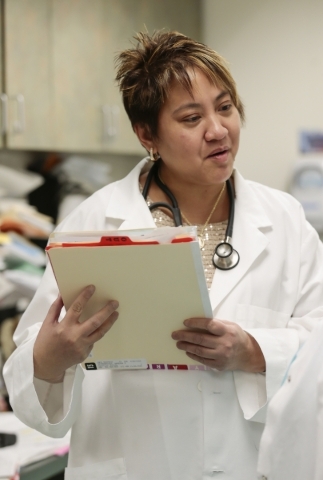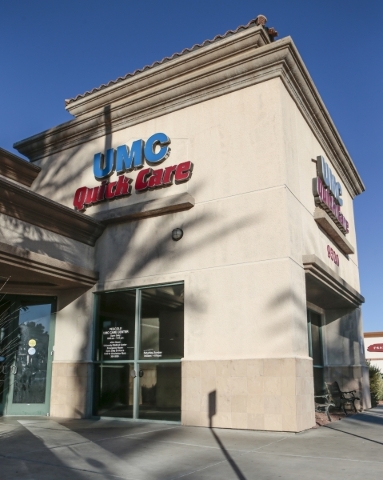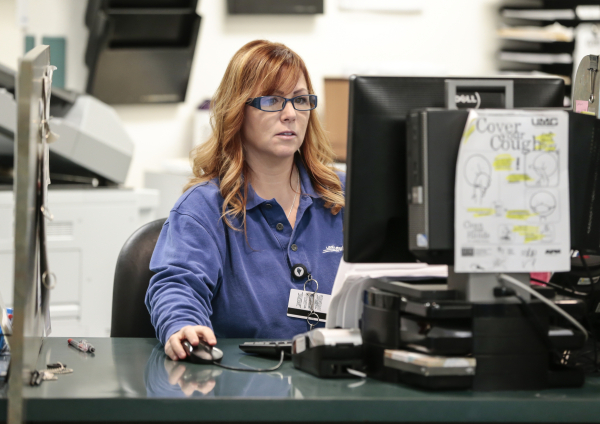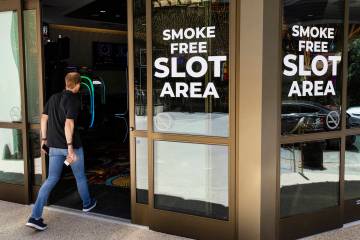Purchase of Southern Nevada urgent care centers part of national trend
When HCA this week announced the acquisition of 14 urgent care centers in Las Vegas, it came as no surprise to those in the industry.
It's part of a national trend of hospital systems acquiring urgent care operations once derided as Doc in the Box. More patients are turning to urgent care because they can't get in to see their doctor and insurance plans with high deductibles make emergency rooms less desirable.
Not only did HCA get 14 centers from Arizona-based Urgent Care Extra but the deal included six others that are under development.
No terms of the deal were announced.
HCA, which owns MountainView Hospital, Southern Hills Hospital, Sunrise Hospital & Medical Center and Sunrise Children's Hospital in addition to four surgery centers, pursued a similar course in 2014 in Dallas-Fort Worth when it acquired 24 urgent care centers from CareNow. HCA has 65 centers nationwide.
Urgent care centers, which typically care of patients dealing with upper respiratory ailments, ear infections, sprains and fractures and cuts, are known for thin profit margins. So why the HCA move into the market and predictions other Southern Nevada hospital chains may pursue a similar strategy?
"It goes to market share," said Alan Ayers, a Dallas-based board member of the Urgent Center Association of America. "The hospital environment has become very competitive for insured patients. Urgent care can help the hospital increase their brand presence in a community. It's a way for the hospital to capture new patients and extend their relationship with existing patients and not lose any patients to others."
Patients who come through the urgent care center typically have insurance are going to need services beyond what's offered there, Ayers said. They get referred to hospitals for diagnostic testing and referred to specialists and primary care physicians within the hospital. They may also need surgery.
HCA officials weren't available to comment but their statement released earlier this week talked about the acquisition complementing its presence in the market and how it builds on a strategy to improve patient access to its health care system.
What HCA is doing is likely to be followed by Valley Health System with its five hospitals in Las Vegas and Dignity Health that operates three hospitals, said Andrew Chung, associate administrator for operations for UMC who oversees urgent care and outpatient clinics. UMC pioneered the urgent care model in 1989 and today operates seven centers under the name Quick Care. Chung said UMC's Quick Care, Concerta, Southwest Medical, Healthcare Partners and Urgent Care Extra are the leading players in the marketplace.
In an email, Dignity Health said it has its own medical group and no plans for urgent care at this time. Similarly, a Valley Health System spokeswoman said it had no current plans for urgent-care facilities.
UMC is eyeing expansion of its urgent care operations and Chung said expects the number of urgent care centers in the valley to grow from the 55-plus that are in the market today — tripling over the past decade — and for acquisitions to continue.
"Urgent Care Extra is a perfect example of that. They were thriving in the market as player for just urgent care, but health care organizations understand the value of urgent care as a player and component of their health care delivery," Chung said. "The acquisition strategy just makes sense for hospitals."
Chung said UMC's urgent care facilities eased some of the burden on its emergency department by giving patients an alternative for their care and easing any transfer to UMC. It also built relationships with patients with six of the seven urgent care centers also housing practices for primary care physicians to serve patients.
Chung said insurance companies prefer contracting with medical systems that offer urgent care because they're able to get patients into that less costly setting compared to an emergency room. The national association said the average cost of an urgent care visit is $155 while the typical emergency room visit runs $750 to $1,250.
"You see a lot of businesses popping up everywhere because even though the margins are relatively thin in urgent care you able to provide that without the huge overhead you need for a 24-hour emergency department with all these specialties that need to be on call," Chung said.
Dr. Ateev Mehrotra, an associate professor in the Department of Health Care Policy at Harvard Medical School and an adjunct policy analyst at RAND Corp., said the market is responding to people wanting health care in a more convenient way, he said. That includes the proliferation of clinics in drug store chains.
With an increase of people with insurance under Obamacare and so few primary care doctors, the wait times for some are becoming so long that people are looking for alternatives, Mehrotra said.
"It reflects a societal shift," Mehrotra said. "Twenty years ago, we didn't have our grocery stores open all of the time. Our banks were only opening banking hours. Now everything in the United States is available around the clock. Expectations of people of what's a reasonable wait time to get health care is also changing. People are looking for more convenient options and these urgent care centers are fitting that need."
































